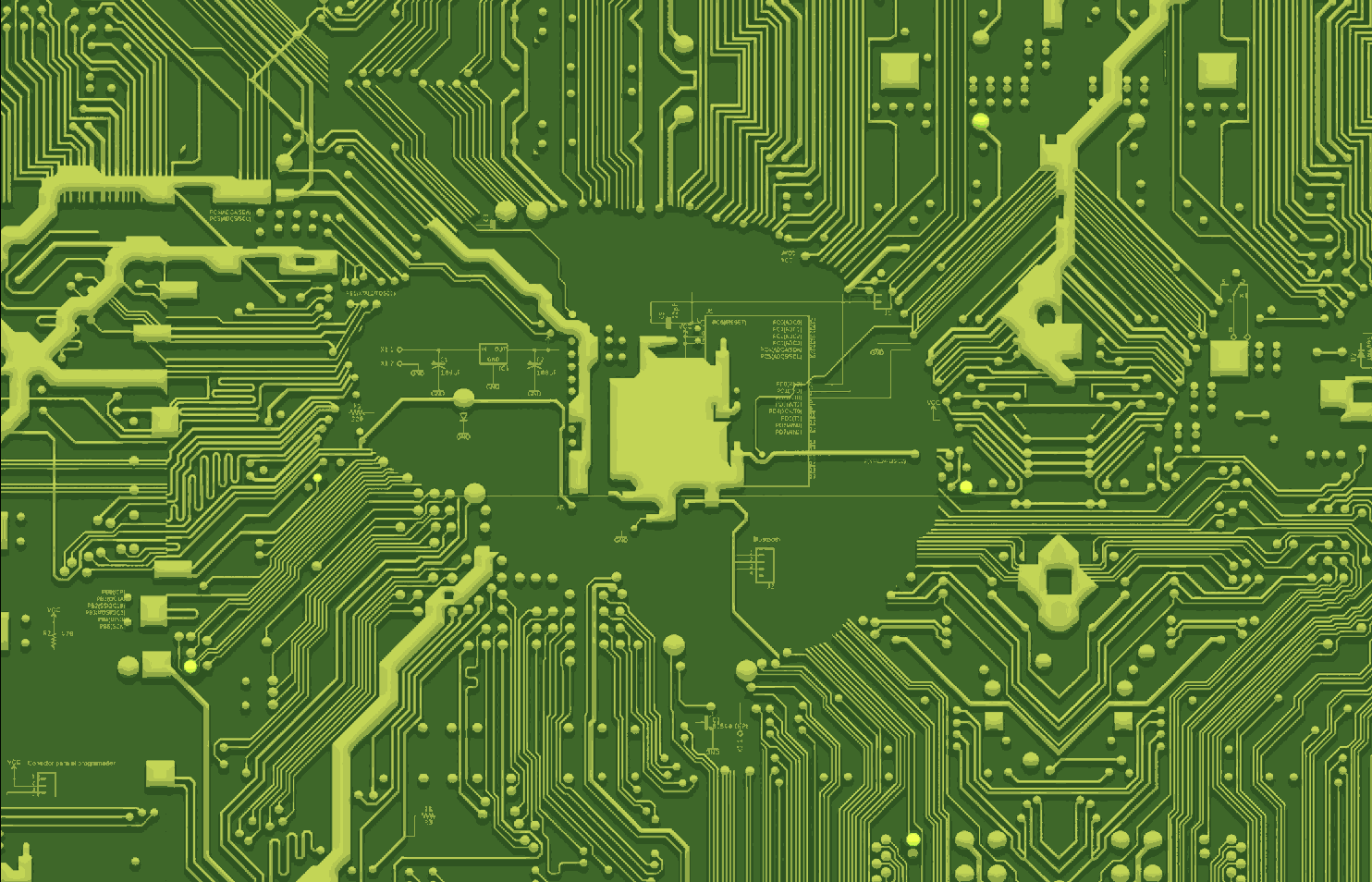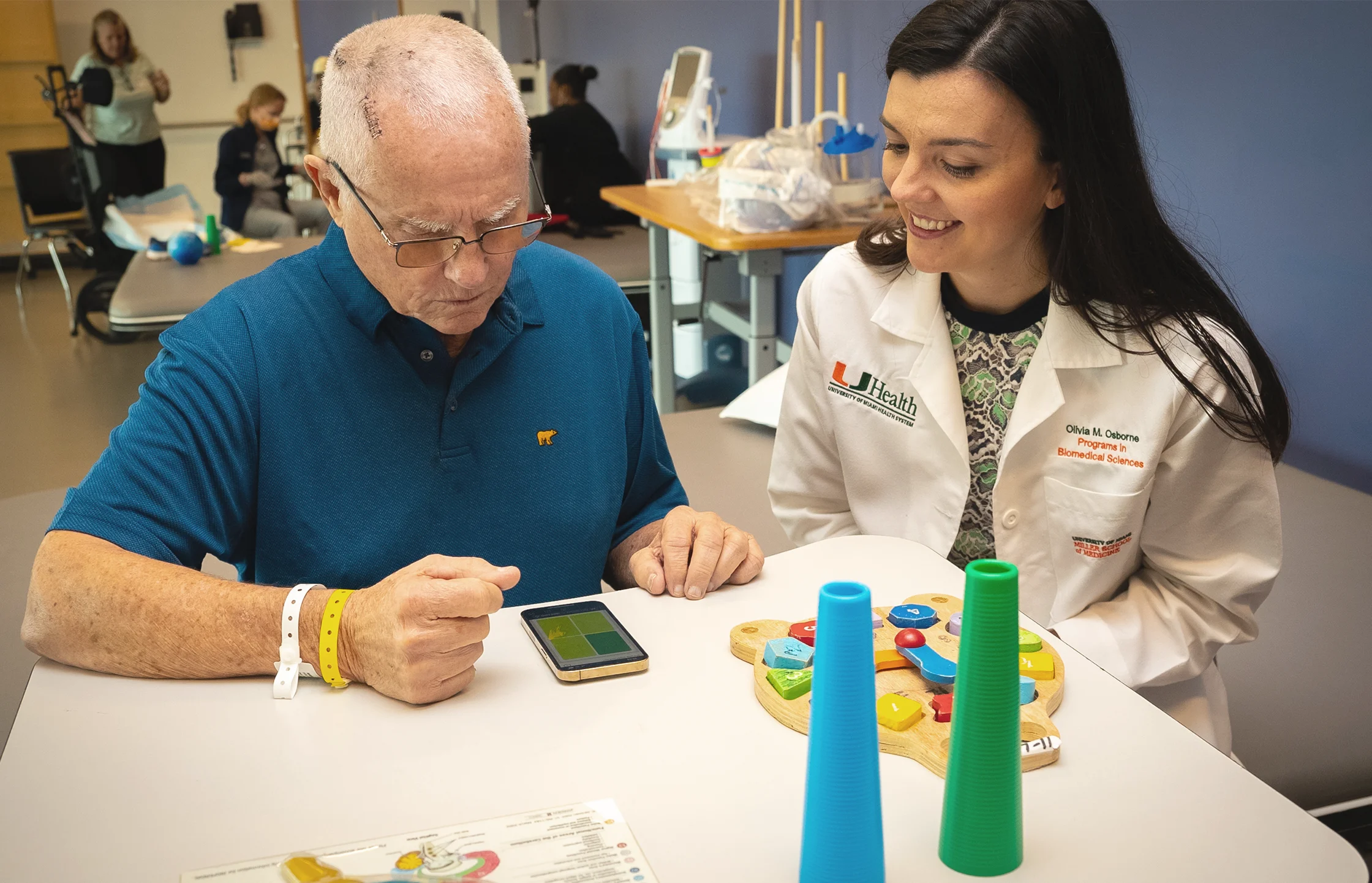Exploring Brain Pathway Connections
A graduate student’s platform aids in recovering cognitive health
By Joey Garcia
Illustration by Raul Arias
Photography by Daniel Menendez

W
hen Olivia Osborne was 20, she lost her father, who was only 56, to glioblastoma. Her loss inspired her to study neuropathologies of the brain and find solutions to help families grappling with similar devastating diagnoses. The result? NeurOn, a platform that helps users regain control of their cognitive health.
“I think the brain is such a nexus of creativity, intelligence and beauty,” said Osborne, a fourth-year Ph.D. candidate in the Biochemistry and Molecular Biology program at the Miller School. “I want to protect this unique ability and teach others about it through my research and by exploring new avenues of therapeutic potential.”
While research remains a primary focus, Osborne is equally devoted to finding practical solutions for those experiencing neurodegenerative diseases.
“I decided to create an easy way to deliver cognitive exercises and aid in recovery efforts,” she said. “We are combining validated cognitive exercises with machine learning to create a personalized and adaptable neurocognitive recovery platform.”
Osborne and her husband, Brett Colbert, an M.D./Ph.D. candidate at the Miller School, assembled a team of undergraduate computer science students from the University of Miami to code the NeurOn prototype. The enterprise secured funding by winning $5,000 in the Jonathan Rothberg Catalyzer Award pitch competition.
NeurOn complements traditional medications. When patients open NeurOn, they undergo a cognitive assessment to predict where in the brain the injury occurred. Leveraging AI, Osborne and her team programmed NeurOn to tailor exercises to each patient’s needs, adapting over time based on performance.
Olivia Osborne. Fourth-year Ph.D. candidate in the Biochemistry and Molecular Biology program at the Miller School


“Patients, caregivers and even their therapists can track cognitive performance and have a personalized dashboard of the patient’s brain health performance,” she said. “Think of your favorite health app on your phone or Apple watch, but now for your brain.”
NeurOn Therapeutics, the company she formed, aims to attract U.S. and international investors, expand the team and forge strategic partnerships for marketing efforts. Version one is set to launch this year, and there is already a waitlist of interested participants. ![]()


